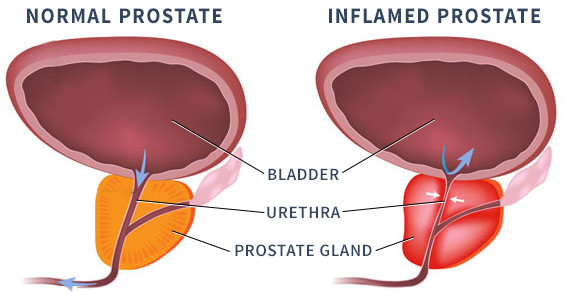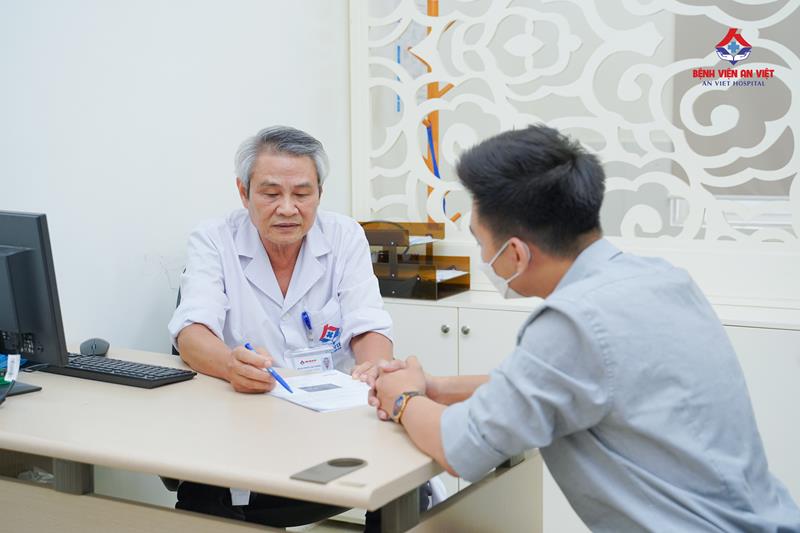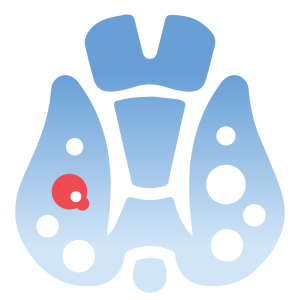Diagnosis
The symptoms associated with prostatitis can be caused by a number of conditions. You may be referred to a specialist in urinary and reproductive system disorders (urologist). Your health care provider will conduct a physical exam, review your symptoms and medical history, and order tests to determine the cause and rule out certain conditions.
Test for diagnosing bacterial infections
Diagnostic tests to assess for infection will likely include:
- Digital rectal exam.With this procedure, your health care provider inserts a lubricated, gloved finger into your rectum to detect inflammation of the prostate.
- Urine test.You’ll need to provide a urine sample to be tested for the presence and type of bacterial infection.
- Blood test.Blood samples may be tested for signs of infection and other prostate problems.
- Prostatic specimen test.In some cases, a health care provider may gently massage the prostate during a rectal exam to release prostate fluid into your urethra. A urine sample after the massage expels the prostate fluid for bacterial testing.
Other tests
If initial tests show no sign of infection, you may undergo other tests, including:
- Urodynamic tests.A variety of tests can be used to measure how well the bladder and urethra hold and release urine. These tests can help characterize problems with urinating and identify the source of problems.
- Imaging tests may be ordered for identifying irregularities in the prostate, abnormal growths or other problems in the pelvic region that may be contributing to pain.

Treatment for prostatitis depends on the specific type diagnosed and your symptoms.
Treating infection
If you have acute or chronic bacterial prostatitis, you’ll take antibiotics. Acute disease may require intravenous (IV) antibiotics in the hospital for a short period. The entire course of antibiotic treatment is usually 4 to 6 weeks — or longer in some cases. Taking all the prescribed medication is important for eliminating the infection and reducing the risk of chronic bacterial prostatitis.
Treating urinary symptoms
Medications, called alpha-blockers, help relax the bladder neck and the muscle fibers where your prostate joins your bladder. This treatment might ease urinary symptoms, such as painful or difficult urination. While this is commonly prescribed for men with chronic prostatitis/chronic pelvic pain syndrome, it may be prescribed to relieve urinary symptoms of bacterial infections.
Treating pain
Your health care provider may prescribe pain medication or recommend nonprescription drugs, such as acetaminophen (Tylenol, others) or ibuprofen (Advil, Motrin IB, others).
Managing psychological symptoms
Your health care provider may recommend psychotherapy with a mental health care professional to help you manage stress, depression or anxiety that may be associated with chronic pain.
The following remedies might ease some symptoms of prostatitis:
- Soak in a warm bath (sitz bath) or use a heating pad.
- Limit or avoid alcohol, caffeine, and spicy or acidic foods, which can irritate your bladder.
- Drink plenty of water. This will cause you to urinate more and help flush bacteria from your bladder.
Alternative medicine
Alternative therapies that show some promise for reducing symptoms of prostatitis include:
- A biofeedback specialist uses signals from monitoring equipment to teach you to control certain body functions and responses, including relaxing your muscles.
- This treatment for pain management involves inserting very thin needles through your skin to various depths at certain points on your body.
- Herbal remedies.Some studies suggest that rye grass pollen extract (cernilton) may help manage pain associated with chronic prostatitis/chronic pelvic pain syndrome. There is insufficient evidence for other herbal remedies for treating pain associated with prostatitis.
Discuss your use of alternative medicine practices and herbal treatments with your doctor.
Preparing for your appointment

A review of your symptoms and medical history will be an important part of the examination with your health care provider. Be prepared to answer the following questions:
- When did your symptoms begin?
- Are your symptoms constant, or do they come and go?
- Are you experiencing pain? Where?
- Do you experience pain when urinating?
- Do you have difficulty urinating, such as dribbling or hesitant urination?
- Have you observed bloody or cloudy urine?
- Have you experienced a sudden, urgent need to urinate?
- Are you urinating more often than usual?
- How often do you need to urinate in the night?
- Do you experience pain when ejaculating?
- Have you been diagnosed with bacterial prostatitis or a urinary tract infection in the past? When?
- Did you take all of the pills for that infection?
- Have you had a recent injury to your groin?
- What medications, dietary supplements, herbal products and vitamins do you take?
An Viet Hospital: A prestigious address for prostatitis treatment
If you are having uncomfortable symptoms related to prostate disease, you can choose An Viet General Hospital at 1E Truong Chinh, Thanh Xuan, Hanoi. This is a reliable medical facility, chosen by a large number of customers.
At An Viet Hospital, the process is carried out to ensure maximum safety and efficiency:
- Effective treatment regimen, suitable for each case: An Viet Hospital applies both medical and surgical methods.
- Team of good doctors: An Viet owns a team of experienced and qualified doctors with many years of working in major hospitals such as: Saint Paul General Hospital, Viet Duc Hospital, etc.
- Modern equipment and machinery: In order to serve the process of medical examination and treatment safely, accurately and with high efficiency, An Viet is equipped with a system of modern machinery: automatic blood testing machine with 24 parameters, 4D ultrasound machine, high frequency machine for the treatment of diseases.
- Reasonable medical examination and treatment costs: At An Viet Hospital, the examination costs are public and transparent before the patient makes an appointment. After diagnosing and consulting treatment methods, the doctor will inform all specific costs for the patient to understand. Therefore, customers can fully be active during their medical examination and treatment process.
- Insurance payment support: An Viet supports insurance payment up to 100% depending on the type of patient participating. Ensure that the procedure is done quickly and in accordance with regulations.
- High confidentiality: When visiting the hospital, all patient information is absolutely confidential by the hospital. All procedures and medical records must be approved by the patient.
- Dedicated online consulting support: To ensure the best service quality, An Viet supports free phone and text messages for customers. Patients can book an appointment online for assistance in arranging a reasonable examination time.
One of the famous doctors treating here is Dr Phan Van Thang. Dr Thang has more than 40 years of experience in the field of Urology. The doctor has practiced advanced techniques at major medical training centers of the country such as Viet Duc Hospital, University Hospital of Medicine and Pharmacy in Ho Chi Minh City, Popular Hospital – Grade I specialty hospital. on general surgery, urology… The doctor is a former member of the Executive Committee of the Vietnam Association of Nephrology and Urology.
For more infomation, please to call 1900 2838 – 0965 98 37 73 for support.
——————————————-
AN VIET GENERAL HOSPITAL
Address: 1E Truong Chinh, Thanh Xuan, Hanoi
Hotline: 1900 28 38 – 0965 98 37 73
Website: www.benhvienanviet.com
Fanpage: https://www.facebook.com/benhvienanviet
Download An Viet Hospital APP to “Look up results – Book an appointment – Video Call with a doctor” and more: https://onelink.to/pjmasd















